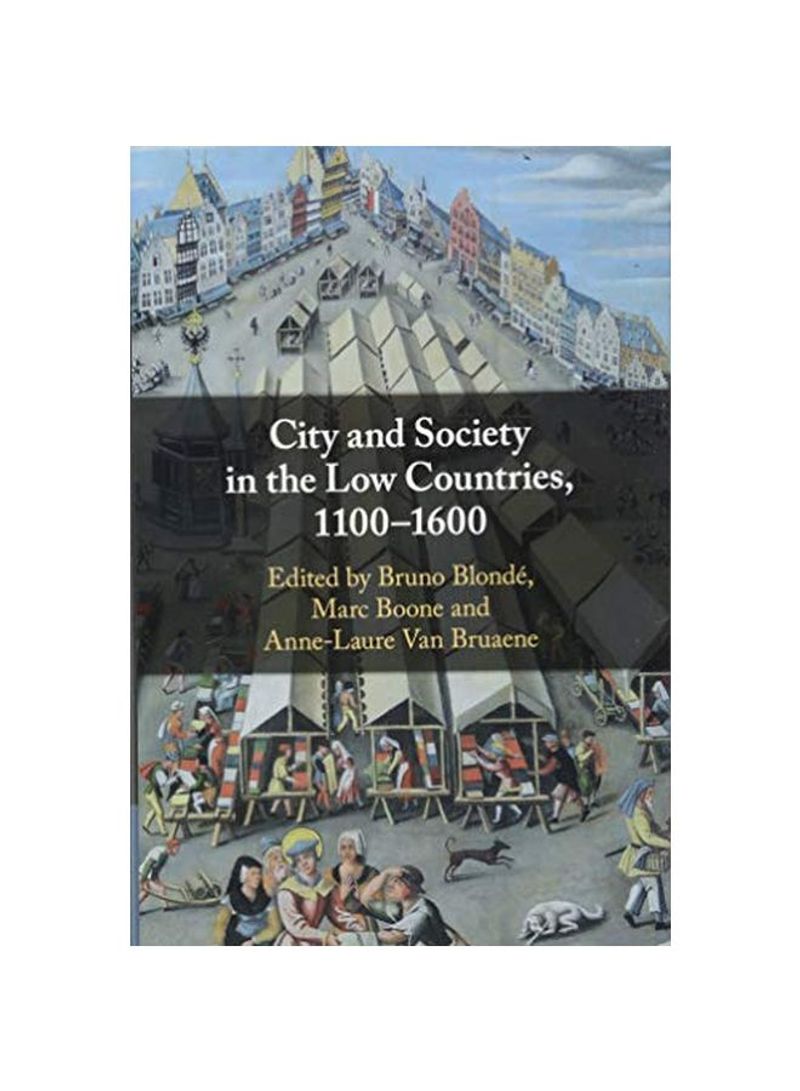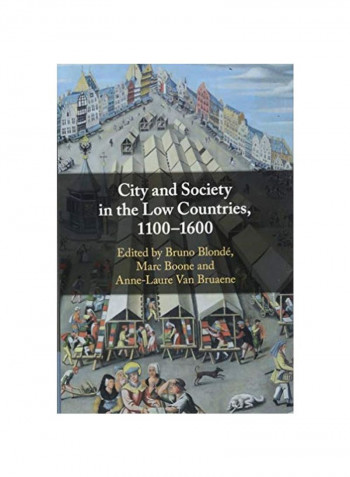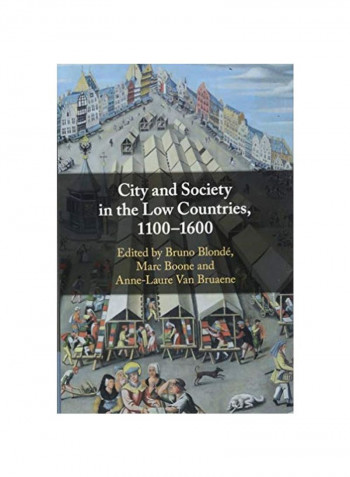City And Society In The Low Countries, 1100-1600 Hardcover
Recommend
Sort by
Rating
Date
Specifications
Author 1
Blonde, Bruno
Book Description
The Low Countries was collectively one of the earliest and most heavily urbanised societies in European history. Present-day Belgium and the Netherlands still share important common features, such as comparatively low income inequalities, high levels of per capita income, a balanced political structure, and a strong 'civil society'. This book traces the origins of this specific social model in medieval patterns of urbanisation, while also searching for explanations for the historical reproduction of social inequalities. Access to cheap inland river navigation and to the sea generated a 'river delta' urbanisation that explains the persistence of a decentralised urban economic network, marked by intensive cooperation and competition and by the absence of real metropolises. Internally as well, powerful checks and balances prevented money and power from being concentrated. Ultimately, however, the utmost defining characteristic of the Low Countries' urban cultures was located in their resilient middle classes.
ISBN-13
9781108474689
Language
English
Publisher
Cambridge University Press
Publication Date
30 November 2018
Number of Pages
316
About the Author
Bruno Blonde is affiliated to the Centre for Urban History and the Urban Studies Institute at the Universiteit Antwerpen, Belgium. He publishes on the history of urban networks in the Low Countries, pre-industrial transport, the history of consumption and material culture, retail trade, urban growth and social inequality. Marc Boone teaches medieval history at Universiteit Gent, Belgium. At the moment, his research is oriented primarily toward financial urban history, the social and political history of towns in the late medieval Low Countries and Burgundian history. Anne-Laure Van Bruaene teaches cultural history of the early modern era at Universiteit Gent, Belgium. Her research is oriented toward urban culture in the late medieval and early modern Low Countries, especially the Reformation and the Dutch Revolt, guilds and confraternities as well as the social context of art, literature and religion.
Editor 1
Bruno Blonde
Editor 2
Marc Boone
Editorial Review
This is a sophisticated overview of urbanity in the southern Low Countries from the central Middle Ages into the early modern period, a time of extraordinary economic, political, and cultural achievements. Written by experts and supported by up-to-date bibliographies, the chapters explain the creativity of these cities and describe their legacy in Europe thereafter.' Martha Howell, Columbia University, New York 'This is a multi-faceted, longue duree account of the rise of the urban system of the Low Countries up to the Dutch Revolt which demonstrates how distinctive it was in European terms - decentralized, dominated not by urban elites but by middle-rank groups and institutions. Written by an all-star team of Belgian scholars, drawing on massive recent research, this book will be essential reading for urban historians and medievalists.' Peter Clark, University of Helsinki 'The Low Countries developed the most dynamic urban network in medieval northern Europe. This comprehensive and lively volume, itself the product of collaborative research undertaken at universities in the Low Countries, provides a fine introduction to this age of achievement and conflict in economic, social, political, intellectual, artistic and religious affairs.' Derek Keene, Institute for Historical Research, University of London 'These essays show how Europe's most densely populated region developed its most dynamically networked urban societies. Leading experts present the urban spaces of the Low Countries as living and lived in, emphasizing social groups, material culture, and the complex unfolding of vibrant languages of rituals, spaces, and senses over time.' Nicholas Terpstra, University of Toronto 'City and Society in the Low Countries, 1100-1600 is the product of planning, knowledge and cooperation, just like the urban communities it so effectively explores. It offers an integrated historical analysis of urban life in its many forms, from migration to town planning, social relations to religious lives. In a region where transport was easy, and the drive towards dynamic innovation strong, the foundations for northwest Europe's hegemony - in the Golden Age, but also in contemporary European life - were laid.' Miri Rubin, Queen Mary University London 'This excellent book combines results from the latest research into a convincing picture of the urban societies in the Low Countries, at a time when these were the northern counterpart of Renaissance Italy. A must-read survey for everyone interested in medieval and early modern European history.' Maarten Prak, Universiteit Utrecht, The Netherlands `This is a sophisticated overview of urbanity in the southern Low Countries from the central Middle Ages into the early modern period, a time of extraordinary economic, political, and cultural achievements. Written by experts and supported by up-to-date bibliographies, the chapters explain the creativity of these cities and describe their legacy in Europe thereafter.' Martha Howell, Columbia University, New York `This is a multi-faceted, longue duree account of the rise of the urban system of the Low Countries up to the Dutch Revolt which demonstrates how distinctive it was in European terms - decentralized, dominated not by urban elites but by middle-rank groups and institutions. Written by an all-star team of Belgian scholars, drawing on massive recent research, this book will be essential reading for urban historians and medievalists.' Peter Clark, University of Helsinki `The Low Countries developed the most dynamic urban network in medieval northern Europe. This comprehensive and lively volume, itself the product of collaborative research undertaken at universities in the Low Countries, provides a fine introduction to this age of achievement and conflict in economic, social, political, intellectual, artistic and religious affairs.' Derek Keene, Institute for Historical Research, University of London `These essays show how Europe's most densely populated region developed its most dynamically networked urban societies. Leading experts present the urban spaces of the Low Countries as living and lived in, emphasizing social groups, material culture, and the complex unfolding of vibrant languages of rituals, spaces, and senses over time.' Nicholas Terpstra, University of Toronto `City and Society in the Low Countries, 1100-1600 is the product of planning, knowledge and cooperation, just like the urban communities it so effectively explores. It offers an integrated historical analysis of urban life in its many forms, from migration to town planning, social relations to religious lives. In a region where transport was easy, and the drive towards dynamic innovation strong, the foundations for northwest Europe's hegemony - in the Golden Age, but also in contemporary European life - were laid.' Miri Rubin, Queen Mary University London `This excellent book combines results from the latest research into a convincing picture of the urban societies in the Low Countries, at a time when these were the northern counterpart of Renaissance Italy. A must-read survey for everyone interested in medieval and early modern European history.' Maarten Prak, Universiteit Utrecht, The Netherlands
Editor 3
Anne-laure Van Bruaene



